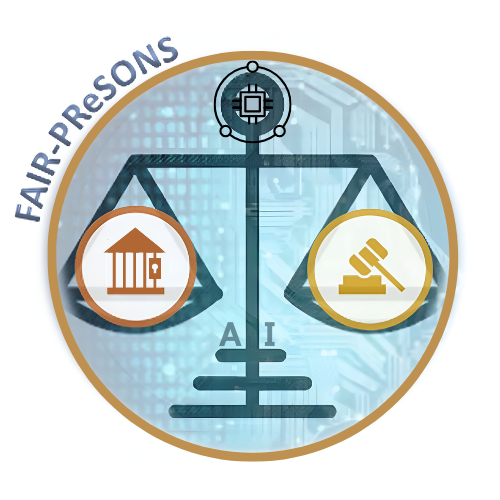
The FAIR-PReSONS project, funded by the European Union and coordinated by the University of the Aegean, seeks to address and mitigate gender bias in recidivism data to ensure fair and equitable decisions within national and European criminal justice systems. The initiative focuses on collecting and digitizing data from prison establishments and offender management systems in Greece, Portugal, and Bulgaria. This data is structured into knowledge graphs and made accessible through a dedicated data portal. By employing advanced algorithms and integrating knowledge graphs with artificial neural networks, the project aims to enhance the accuracy and explainability of recidivism predictions. This holistic approach to fair AI aspires to support unbiased decision-making, thereby assisting judges and legal practitioners in their efforts.
The project has outlined several key objectives to achieve its mission. Firstly, it aims to develop a bias-free AI recidivism prediction system. This involves thoroughly analyzing the potential impact of the AI system and its activities on all genders to ensure fairness and equity. Secondly, the project plans to conduct a comprehensive gender analysis to identify and address any biases present in recidivism prediction systems. This analysis will ensure that the system benefits all individuals fairly. Additionally, the project is committed to collecting and digitizing relevant data from prison establishments and criminal justice organizations, documenting it according to EU standards. Ensuring fairness and non-discrimination is a core objective, with a commitment to preventing any unintended negative effects on any gender and actively promoting a gender-sensitive approach throughout its activities. Furthermore, the project aims to design and implement capacity-building activities by training and educating legal professionals and judges on the ethical and effective use of AI tools in decision-making. Finally, disseminating results and raising awareness about AI’s role in the justice system is a priority, promoting knowledge sharing and fostering a broader understanding of the project’s goals and outcomes.
The envisaged key outputs of the FAIR-PReSONS project include the development of a fair and unbiased AI system that integrates advanced algorithms with knowledge graphs and artificial neural networks. This system aims to enhance the accuracy and explainability of recidivism predictions, supporting unbiased decision-making in the criminal justice system. The project also plans to collect and digitize data from prison establishments and offender management systems in Greece, Portugal, and Bulgaria, structuring this data into knowledge graphs and making it accessible via a dedicated data portal. A preliminary gender analysis will be conducted to identify and address gender biases in recidivism prediction systems. Additionally, the project will train 80 judges and legal practitioners on the ethical and effective use of the AI tool. The findings and outcomes will be widely disseminated through various channels, including publications, newsletters, a project website, social media engagement, and multiplier events in each participating country, aiming to reach up to 120 attendees.
ITML’s role in the project
In the FAIR-PReSONS project, ITML leads the development of the FAIR AI System. This role encompasses two main areas: researching fair AI and bias-free prediction algorithms for recidivism and designing and implementing the bias-free recidivism prediction/decision system. Regarding research, ITML explores advanced algorithms proposed by other fair AI projects, integrating Knowledge Graphs (KGs) into artificial neural networks (ANNs) like graph neural networks (GNNs) and generative adversarial networks (GANs) to improve prediction accuracy and explainability. ITML also investigates Linked Open Data (LOD) and KG procedures to enhance fair AI solutions. During system design and implementation, ITML develops tools and techniques for bias assessment and mitigation, involving statistical analysis, ontology-based methods, and machine learning measures. Additionally, ITML conducts extensive testing of the developed modules and integrated system using various datasets, LOD/KGs, and algorithms to optimize accuracy and explainability.
For more information, visit the official project website: https://fair-presons.aegean.gr/
Acknowledgement
The project FAIR-PreSONS has received funding from the European Union’s Horizon Europe Research and Innovation Programme under the Grant Agreement No. 101160473.

